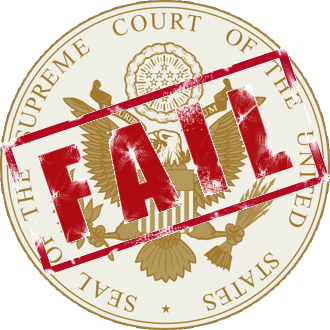Art credit: Radix
UPDATE Thurs. From Breitbart Big Government:
Obamatrade is alive.
One week after the House of Representatives overwhelmingly rejected Obamatrade by voting against a key provision of it — Trade Adjustment Assistance — GOP establishment lawmakers resuscitated Trade Promotion Authority and rammed it through Thursday afternoon. The final tally was 218-208. . . .
. . . Because the Senate passed TAA and TPA together, the individual House version will now have to go back to the Senate for approval, where it may face a filibuster. It’s unclear how many senators would support TPA without TAA, a measure to aid workers who lose their jobs because of trade policy.
# # #
According to The Hill, the House will vote
Thursday [tomorrow] on a stand-alone measure to grant President Obama fast-track trade
authority.
Phyllis Schlafly
explains how bad the bills are:
On
Friday, Congress disrupted President Obama’s plan for a sweeping transfer of
U.S. sovereignty to an unaccountable group of foreign busybodies. Hurray for
the stalwart Americans who resisted the demands of Obama, the Republican
leadership and the big-donor claque – but Speaker Boehner plans to give
Congress another chance this week to make this dangerous mistake.
The Trans-Pacific Partnership (TPP) would turn over to
globalists the power to issue regulations about U.S. trade, immigration, the
environment, labor and commerce. It’s called a “living agreement,” which means
the globalists can amend and change the text of the so-called agreement after
it has gone into effect.
Sen. Jeff Sessions, R-Ala., has frankly warned about this
giveaway of U.S. sovereignty. Not only would Congress give up its powers to
negotiate and write the terms of a treaty, but Congress also gives up its power
to debate and amend the deal, to apply a cloture vote in the Senate, and to
require a two-thirds vote in the Senate.
. . .
TPP puts us in a new political and economic union before a
single private citizen is told about it and with public opinion running five to
one against it. Remember when Nancy Pelosi said we had to pass Obamacare in
order to find out what is in it?
Rep. Duncan Hunter, R-Calif., warns, “TPP calls for the formation
of a permanent political and economic union known as the Trans-Pacific
Partnership Commission, which will have power to issue regulations impacting
not only trade but immigration, the environment, labor and commerce.” He added,
Congress “will have surrendered its legislative prerogatives. Before a word,
line, paragraph, or page of this plan is made public, Congress will have even
agreed to give up its treaty powers.”
. . .
Sessions continued: “Congress would be pre-clearing a political
and economic union before a word of that arrangement has been made available to
a single private citizen. This has the earmarks of a nascent European Union,”
and Americans certainly don’t want to belong to a European union (that’s why we
fought the American Revolution).
Rep. Hunter also warns that the new global governance
institution would be “authorized to issue policies and regulations affecting
our economy, our manufacturers, our workers, our immigration procedures, as
well as current, labor and environmental practices.”
TPP is separating us from the U.S. Constitution and from
national sovereignty and replacing both with a global governance
superstructure. TPP has wrapped its audacious global governance plan in the
mantle called “free trade,” which is a misnomer if there ever were one.
And here’s an update
from today’s Politico:
House Speaker John Boehner
and Republican leaders are moving to revive President Barack Obama’s
beleaguered trade agenda with an elaborate procedural workaround that was
quickly greeted with skepticism among some Democrats.
Under the emerging plan,
the House would vote on a bill that would give Obama fast-track authority to
negotiate a sweeping trade deal with Pacific Rim countries, sending it to the
Senate for final approval. To alleviate Democratic concerns, the Senate then
would amend a separate bill on trade preferences to include Trade Adjustment
Assistance, a worker aid program that Republicans oppose but that House
Democrats have blocked to gain leverage in the negotiations over fast-track.
When a group of House conservatives
voted last week to kill a trade bill favored by President Obama, House Speaker
John Boehner and other GOP leaders who support the measure steamed.
Representative Mick Mulvaney (R., S.C.) celebrated the revolt as a
coming-of-age moment for rebel backbenchers. “Yesterday will be the day that we
look back at as the day that conservatives finally started getting organized in
the House,” he wrote in a note to the Spartanburg Tea Party.
Led by
Representative Jim Jordan (R., Ohio), a platoon of conservatives demanded that
Boehner agree to a series of concessions in exchange for their support for
so-called Trade Promotion Authority (TPA), legislation that would give
President Obama wider latitude to negotiate free-trade agreements. When GOP
leadership ignored them, Jordan and his allies tried to kill the bill on a
procedural vote — a rare step made more surprising by the lawmakers’ general
support for free trade. It was the boldest attempt yet from the recently formed
House Freedom Caucus, which Jordan chairs, to counteract Boehner’s perceived
tendency to wilt in the face of Democratic pressure.
Find your
Representative here. The Congressional switchboard number is (202) 224-3121.
Here are details for Ohio Senators:
Sen.
Sherrod Brown
Phone: 202-224-2315
Fax: 202-228-6321
Phone: 202-224-3353
#
# #












